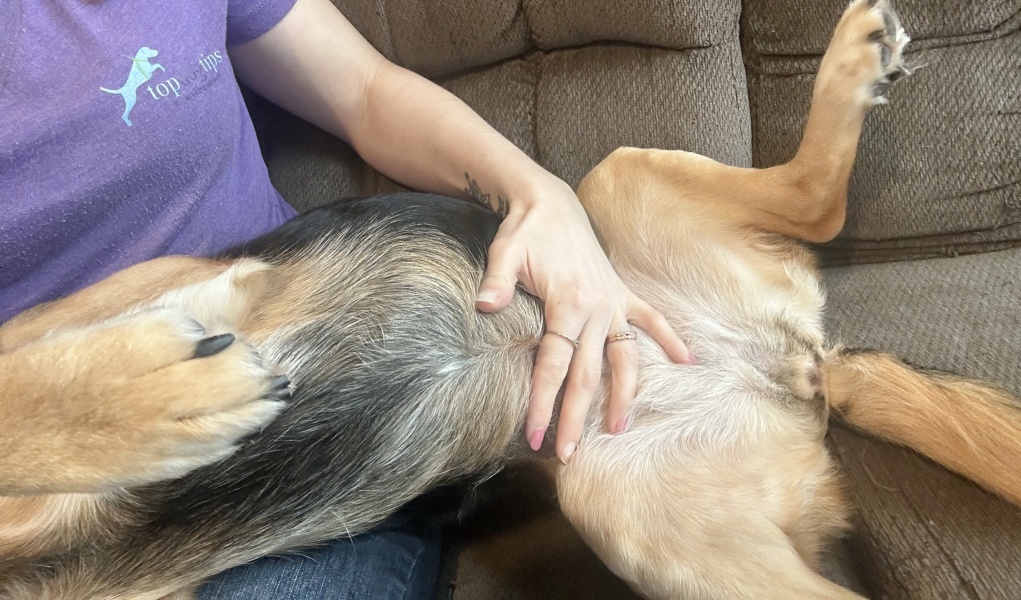Have you ever wondered why your dog kicks his leg when you scratch that sweet spot under his chin or on his belly? Dogs are funny creatures, and this is one of their most well-known comical traits. Are they ticklish? Is it just a random reflex? I’m sharing the science behind the question of why do dogs kick their leg when you scratch their belly, and the answer might surprise you!
Virtually every dog on Earth loves a good belly rub. I don’t know about you, but one of my favorite things to do is sit with my dogs and give them a good rub down. They love it, and it makes us both happy. This quality time fosters the bond between us, and even makes me laugh sometimes when their legs start kicking.
I’ve been around dogs my entire life. I always thought this behavior was just a canine quirk or some kind of uncontrollable reflex. After a chat with my veterinarian and some research, I realized that there is actually a scientific reason for why do dogs kick their leg when you scratch their belly.
Why Do Dogs Kick Their Leg When You Scratch Their Belly?
There is a cluster of nerves under your dog’s skin on the side of his belly. When you touch this spot while scratching your pup, the nerves send a signal to his leg to start scratching. Research shows that this is an involuntary response to help protect dogs from fleas, ticks, mosquitos and other irritating pests.
Has your doctor ever tapped your knee to make sure that your reflexes are intact? You can’t help it when your leg kicks out, and neither can your dog. It’s the same type of reflex.
You may see that the leg starts moving and then stops or you may have trouble finding the exact spot sometimes. The delay is due to the time that it takes for the nerves to send the signal through the spinal cord and down to the leg to get it moving. In scientific terms, this is known as the “latency period”.
The motion will also tend to start slow and then really get moving. That is because the reflex is designed to swat away pests. As you continue to scratch, the reflex picks up in intensity.
The kicking motion may also last for a second or two after you stop scratching. This is because the nerves need time to move the signal through the spinal cord and back down to the leg to get the kicking to stop. If you scratch for too long, the reflex may stop as it gets “tired out”.
While we see the scratching reflex as a funny behavior that our dogs seem to enjoy, it may not actually be the case. Watch your dog’s body language while you’re scratching him. Is he startled when you touch that spot?
Your dog’s reaction may be the same as it would be if a bug landed on him or a blade of grass or stick rubbed against his belly while walking through the woods. If you see that he gets nervous or jumpy when you rub that spot, just try to avoid it. You don’t have to stop giving your pooch belly rubs, because he certainly enjoys this attention.
READ NEXT: Interesting Facts About Dogs That Will Surprise Any Owner













